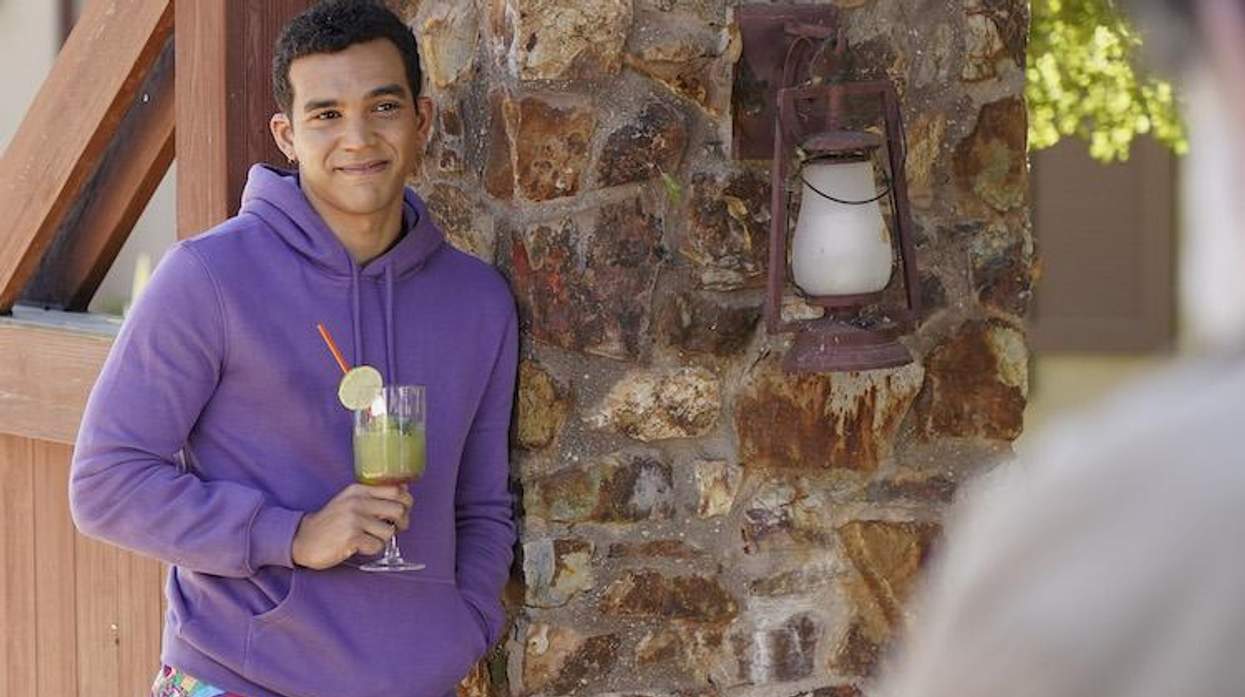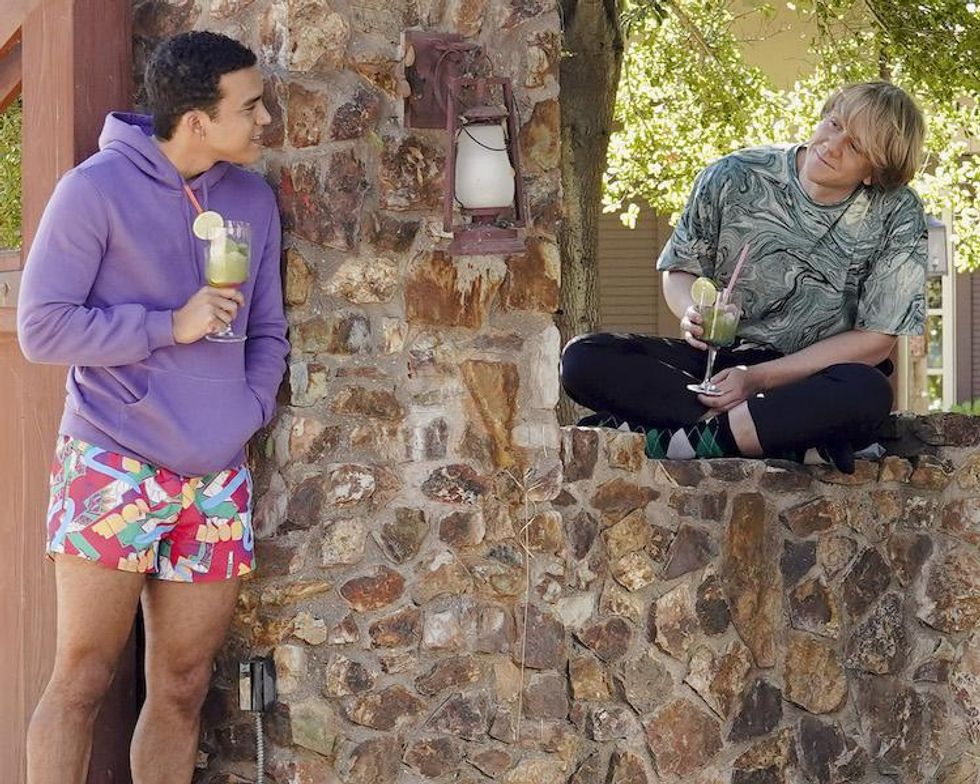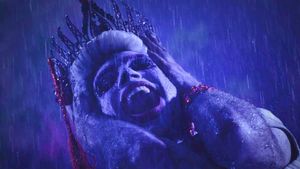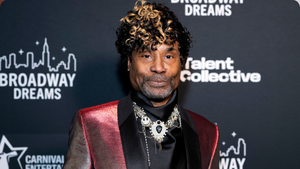Early in the second season of Everything's Gonna Be Okay, set at the start of last year's lockdowns, Adam Faison's adorable and perpetually amenable character Alex asks for permission to complain. Following a lengthy discussion loaded with the malaise and absurdity of life in quarantine, Alex has finally just hauled out the trash from the home he now shares with his boyfriend, Nicholas (the show's creator Josh Thomas), and Nicholas's teenaged sisters, Matilda (Kayla Cromer) and Genevieve (Maeve Press). And after primarily being the supportive boyfriend and a de facto big brother type for the first season, Alex now has real-life problems emerging.
"This is not a life," he concurs with Nicholas about existing in lockdown after the trash is properly in the bin.
The first season of the Freeform series, which centers queer characters and people on the autism spectrum (notably Cromer's Matilda), introduced Alex early on and with little fanfare about queer identities. Lovable and steady, and studying to have a solid career as a dentist, Alex is a complement to his boyfriend, whose quirks and anxieties are exacerbated by the sudden death of Nicholas's father and the subsequent decision to stay on in Los Angeles and care for his sisters (who he's only just met as he grew up half a world away in Australia with his mother). Season 2, which strikes a knife's-edge balance between a collective desire to hide away in abject depression from the news of the world and finding the humor in something like taking out the garbage, makes space for Faison to flex his impressive range as Alex copes with uncertainty and loss.

"What's cool is Josh [Thomas] has always been good at tackling sort of morbid or sad issues in a weird, quirky way like you don't really kind of know what to do with it, like laugh or cry," Faison tells The Advocate. "We start off kind of similarly to the first season with the death, and how do we move on? It felt more natural to kind of ease into it the way that he did, where it's [quarantine] sort of a backdrop of a pandemic, but it's not the focal point of the entire series. He does a very good job at sort of naturally playing out life without overstating it."
The season opens with Matilda squirreled away in her room refusing to come out after the events of the last episode in New York City, where an education at Julliard was in her grip if only she had a more pulled-together support system in Nicholas, Genevieve, and Alex, at least according to the blame she throws at them. While a great deal of effort is made in the season premiere to wrest Matilda from her safe place, in almost a fell swoop, it's revealed that everything Alex has worked for to become a dentist is in a holding pattern. At the same time, he discovers his parents are divorcing.
"It is sort of like a double loss for him," Faison says. "A huge part of Alex is feeling like he wants to become a dentist, and you see him studying throughout the first season. To dually have his parents getting a divorce.... Josh kind of gave my character a real gift that he gave me these pop-off moments. In the first season, [Alex] really tried to keep the peace."
Faison points to the added challenge of his character facing career and family issues amid worldwide panic and uncertainty.
"[Alex] is left to deal with all of these things in quarantine, which felt very much like real life, because when you're in quarantine all you have to do is pretty much sit with your thoughts," he says. "And a lot of times for people, that's really scary."
Everything's Gonna Be Okay was a game-changer from the start with its depiction of a dual-spectrum character (someone who is on the autism spectrum and LGBTQ+) in Matilda. Now the series offers visibility for another underrepresented group of people with the introduction of Alex's dad (CJ Jones), who is deaf.

"I'm excited to see how it pans out with my parents and being a child of a deaf adult -- to see if maybe some folks connect with it," Faison says.
A veteran actor and comedian, Jones has appeared in projects including A Different World and Baby Driver. Faison was excited to work with Jones.
"It was awesome getting to meet him [Jones] and talk with him," Faison says. "He was just [discussing] how few deaf characters are in mainstream television, and also how few Black deaf characters there are [period]."
While Faison had some background with American Sign Language, he amped up his studies when he discovered Thomas had written the storyline involving his dad. During social-distanced meetups with teacher Andrew Moore, Faison says he went from being at a mid-level ASLer to an advanced one.
Regarding Thomas expanding inclusion to the deaf community, Faison says, "It was awesome that Josh decided to like take this on. He likes telling stories that haven't been told before."
But he points out that Thomas ensured the story was told respectfully and with heart.
"There was a process of making sure that it was accurate, like the same that he does with autism. The consultants make sure that it's accurate and represented in a way that is authentic and isn't just checking off boxes for boxes' sakes," he says.
The series also doesn't check boxes in terms of queer representation. As Nicholas continues to get to know the sisters he never grew up with because his parents weren't together and Alex deals with his parents' split, the bond between Alex and Nicholas is refreshingly solid -- even when they're forced into a space together due to the state of the world. Their relationship is something Faison hopes inspires viewers.
"Alex and Nicholas evolve. They get into fights, but in the end, they realize that they care about each other and it doesn't have to be the be-all, end-all -- the arguments they have. I hope that people see that and hopefully like us by the end because we do get down in the mind a little bit," he says.
"But I feel like that's real, and people will maybe relate a little bit, and maybe see themselves reflected in the characters."







































































Charlie Kirk DID say stoning gay people was the 'perfect law' — and these other heinous quotes